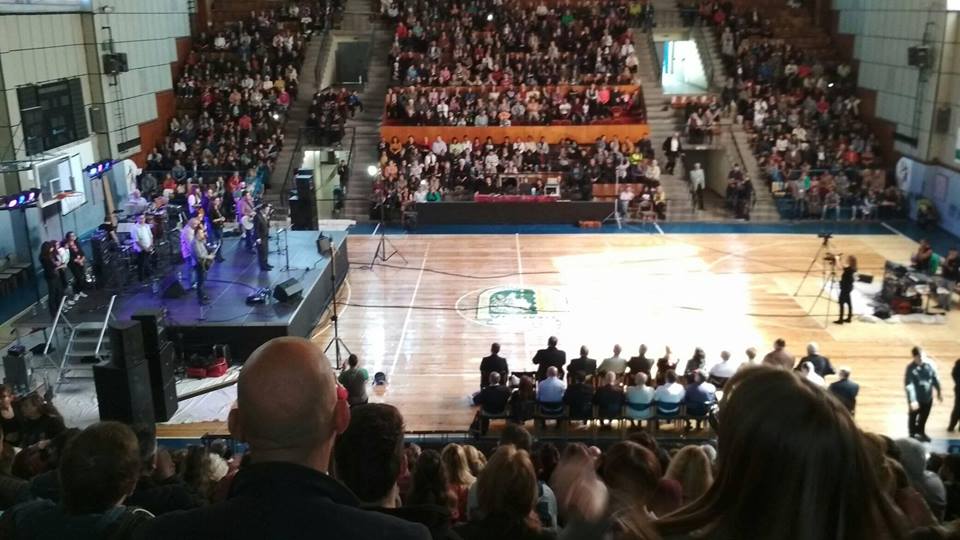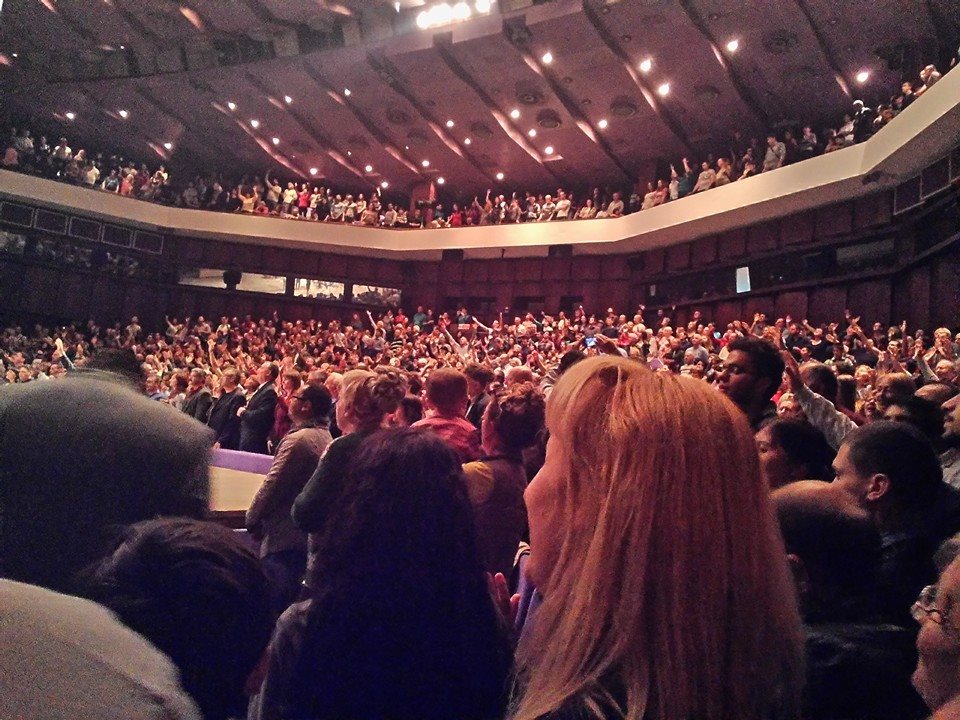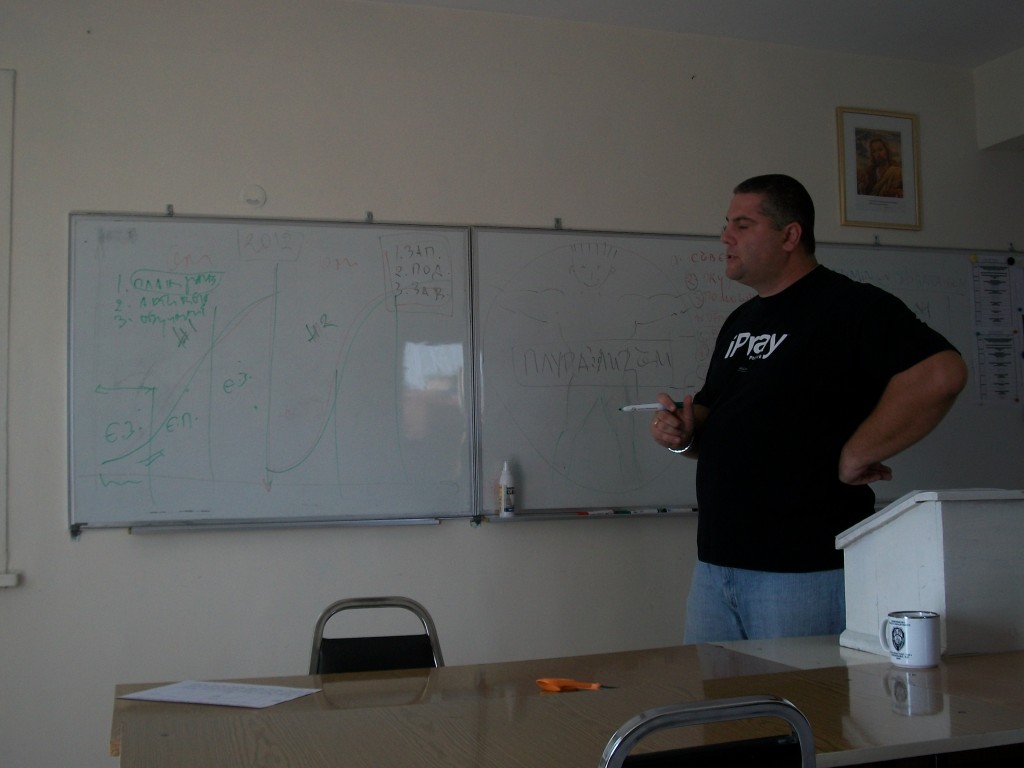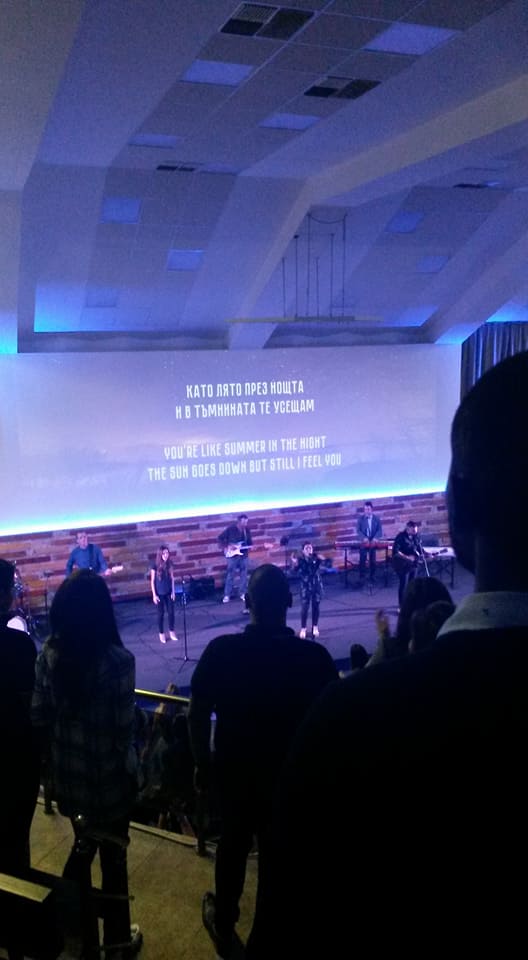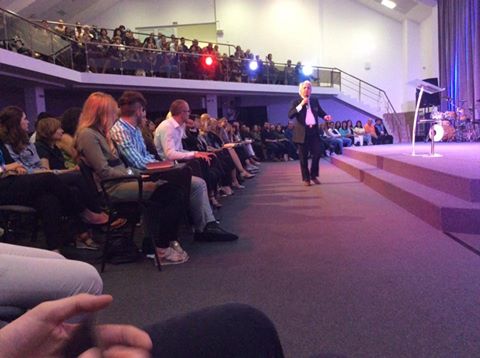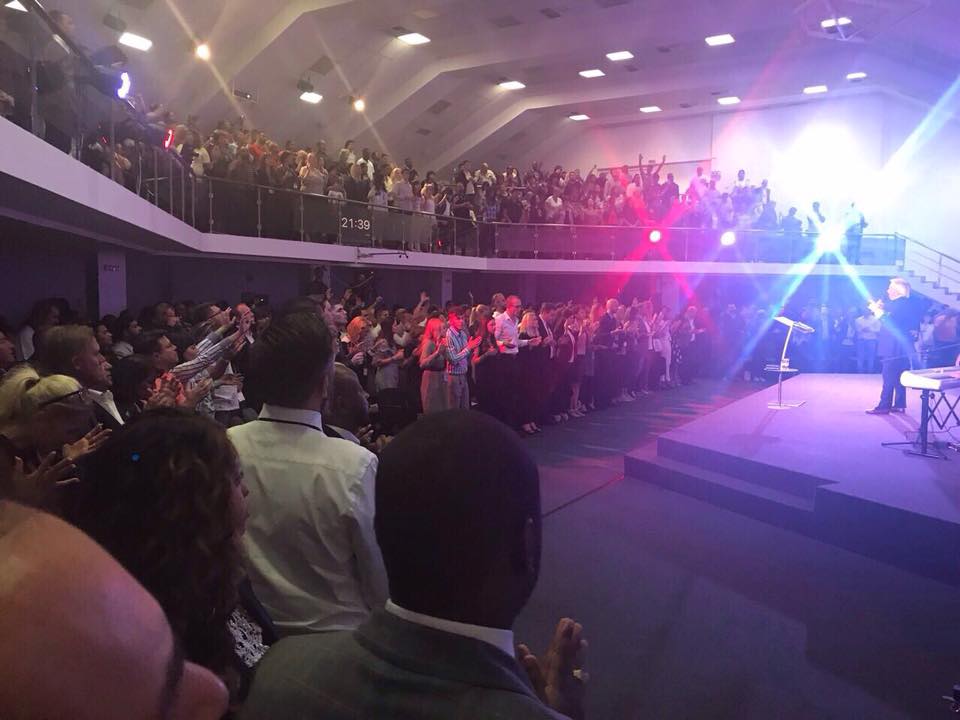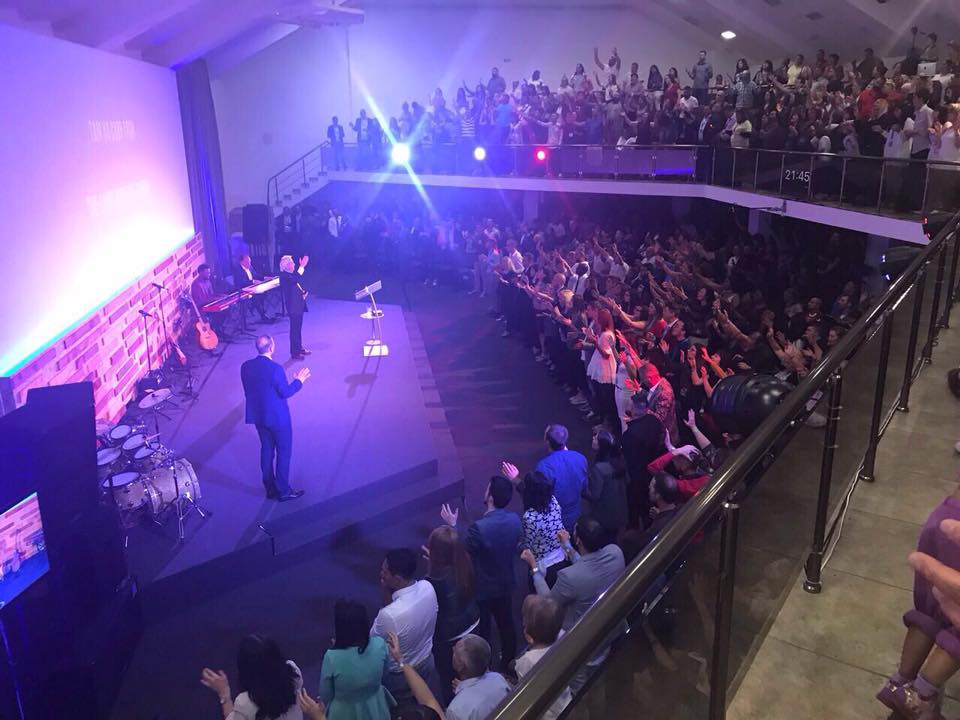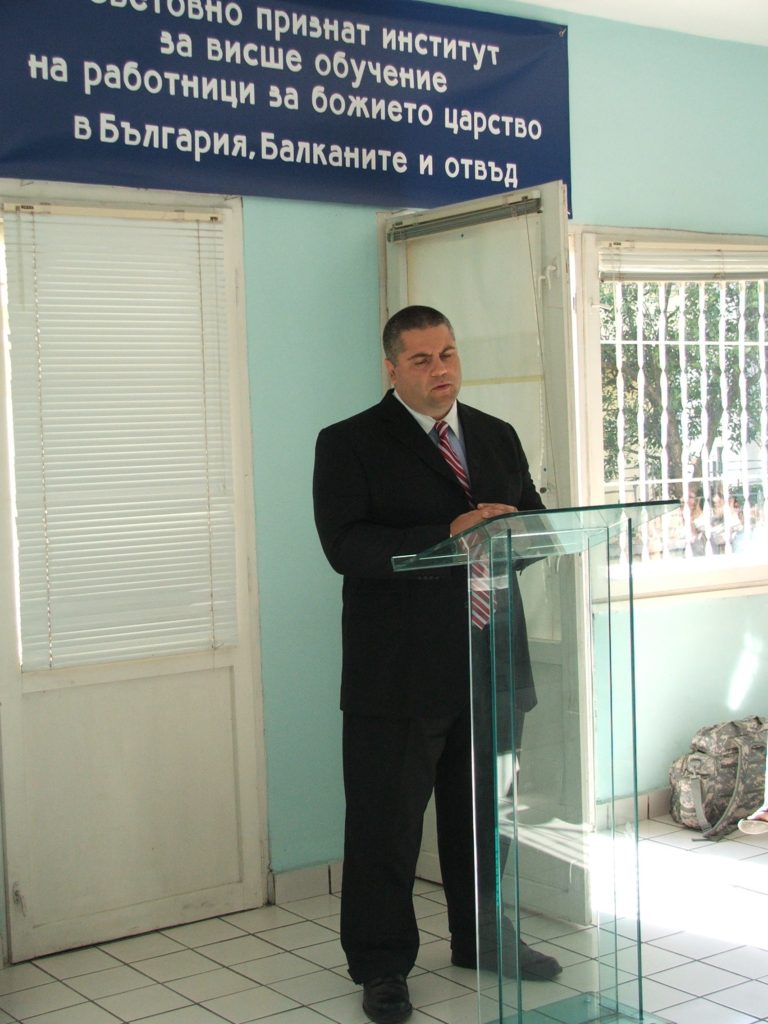South East Region Prayer Meeting in Bulgaria
Prophetic Revival in Bulgaria: The Search for Holiness Continues
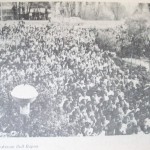 The Fall of the Berlin Wall in 1989 did not take believers in the Eastern Block by surprise. They had been fervently praying for God to intervene and He did. Perhaps the greatest miracle of the 20th century was Communism falling on its own. If suffering with the Regime had been an eschatological expectation, the fall of the Regime was an eschatological celebration. And through all these times, the search for deep, biblical holiness after the heart of God never stopped. For the people of God, that search was always miraculous and prophetic.
The Fall of the Berlin Wall in 1989 did not take believers in the Eastern Block by surprise. They had been fervently praying for God to intervene and He did. Perhaps the greatest miracle of the 20th century was Communism falling on its own. If suffering with the Regime had been an eschatological expectation, the fall of the Regime was an eschatological celebration. And through all these times, the search for deep, biblical holiness after the heart of God never stopped. For the people of God, that search was always miraculous and prophetic.
I n the spring of 1989, a Danish journalist by the name of Johny Noer came to Bulgaria with a prophetic message. For years he had lived and travelled in many countries with his family and coworkers in a convoy of several trailers. They met the start of 1989 with a seven-day fast on the island of Pathmos where God told them to travel to Eastern Europe and proclaim the fall of the Regime. The Convoy did so through many difficulties paying a high price to minster in Bulgaria for the next three months.
n the spring of 1989, a Danish journalist by the name of Johny Noer came to Bulgaria with a prophetic message. For years he had lived and travelled in many countries with his family and coworkers in a convoy of several trailers. They met the start of 1989 with a seven-day fast on the island of Pathmos where God told them to travel to Eastern Europe and proclaim the fall of the Regime. The Convoy did so through many difficulties paying a high price to minster in Bulgaria for the next three months.
The last service they conducted before being extradited by the authorities was on Easter morning at the Black Sea port city of Varna. Thousands of believers arrived from all over the country. The use of an auditorium was not allowed so they gathered outside the small Pentecostal church at the cities outskirts. They were surrounded by a dense police cordon of several hundred K9 patrols. Under these circumstances, the sermon could only be short and simple. In fact, it contained the exact words the Communist Police forbade Pastor Noer to say: “Let My People Go!” A prophecy was given that Communism will soon fall. It was fulfilled exactly seven months later on November 10, 1989.
 But there was something else that happened at that memorable Easter morning. Two large scrolls were brought into the church. There, over 5,000 men and women signed their names as a testimony of their dedication to God and preaching the Gospel until revival breaks through in Bulgaria. Beside a petition to the government for religious freedom, this national declaration affirmed the search for holiness, which even Communism had not been able to stop in Bulgaria.
But there was something else that happened at that memorable Easter morning. Two large scrolls were brought into the church. There, over 5,000 men and women signed their names as a testimony of their dedication to God and preaching the Gospel until revival breaks through in Bulgaria. Beside a petition to the government for religious freedom, this national declaration affirmed the search for holiness, which even Communism had not been able to stop in Bulgaria.
In the fall of 2014 our ministry invited Pastor Johny Noer to Bulgaria again. His second visit marked exactly 25 years since the Fall of the Berlin Wall. After a week long crusade in a dozen of Bulgarian cities, several thousand Christians gathered again in Varna and signed two new scrolls containing the Second Varna Declaration. The event was just like a quarter of a century ago and made clear that revival cycles take place on increments of 25 years – a period where two generations overlap. It also proved that the search for holiness has not stopped in Bulgaria.
Read Also:
Pentecostal Education in Bulgaria a Decade Later
This article was originally authored in 2008 and now addresses issue that have been ongoing for over 20 years
The missionary strategy of Protestant denominations toward Bulgaria within the 19th century effectively included evangelistic, publishing and educational outreaches. The educational paradigms, which the western missionaries introduced, were soon adopted by the Bulgarian people, quickly realized as progressive and successfully implemented in both religious and secular Bulgarian schools. These trends continued in the next several decades, educating Bulgarian youth and producing the first generation of Bulgarian leaders who took their rightful place in political, economical, social and religious structures in the Bulgarian lands.
Unfortunately, when the Communist Revolution took place in Bulgaria, all religious schools, with the exception of the Eastern Orthodox Seminary in Sofia, were closed down and religious education was outlawed. For the next half century, Bulgarian evangelical ministers were destined to do ministry without any former religious education.
When the Berlin Wall fell in 1989, the tension for religious education reached its culmination and a number of religious schools were quickly established across Bulgaria. The instruction methods used ranged from Bible study home groups to Bible colleges all to fulfill the niche for religious education. Two important milestones must be mentioned here, and they are the opening of the Logos Bible Academy in the Danube town of Russe and the starting of a long distance program by ORA International.
Naturally, the general trend of Bulgaria’s post communist governments to control these educational institutions resulted in the registration of a religious institute under the Directorate of Religious Affairs, a government agency formed to register, manage and supervise the activity of religious formation on the territory of Bulgaria. It was in this context that the Bulgarian Evangelical Theological Institute (BETI) was formed and registered in the capital Sofia. It included five departments (often called faculties), representing Bulgarian evangelical denominations with a predominant focus on the Pentecostal wing.
The Theological College in Stara Zagora, often mistakenly called a Theological Seminary, was established in 1998 as one of these departments to represent the Bulgarian Church of God. Because of current developments within the Bulgarian Church of God, the department was started in the city of Stara Zagora, located some four hours east of the capital and became the only of the faculties not located in Sofia. Naturally, its location, staff, affiliation and purpose created a sense of independence, both in its theology and structure.
With the acceptance of the new Act of Confessions in 2002, the Bulgarian government employed a more drastic approach toward all religious institutions not fitting the standard denominational profile. Since BETI was among them, the government initiated the process of the Institute’s accreditation with the Ministry of Education. Five years later, the government is yet to grant the accreditation. It was not until the publication of this article in March, 2008 that the Bulgarian Government moved toward finalizing the long-awaited accreditation of BETI.
Meanwhile the Institute’s management is facing a tri-dimensional dilemma which includes economic, cultural and leadership tensions. Some of them have not been resolved due to the lack of recourses; others have not been resolved due to the lack of essential prerequisites in the long-term educational strategy of the school. The following is a list of the challenges, which must be resolved immediately in order for the Institute to continue to operate under the said government accreditation:
1. The school’s baccalaureate program, structured primarily after 20th century American Bible college model, is practically incompatible with the requirements of the Bulgarian Ministry of Education. The dilemma of changing the program to meet the accreditation requirements or to retain the school’s evangelical identity is yet to be resolved on part of BETI as a whole, as well as its theological departments individually.
2. Three masters programs that were to focus on the subjects of Christian counseling, chaplaincy ministry and missions were secured from the Bulgarian government several years ago. However, because of the lack of students and experts on the said topics, only one of them, the master’s program in counseling, has been partially developed. Today, it remains in its initial phase as a distance-learning program, while the other two programs are virtually untouched.
3. It has taken BETI over a decade to comply with the country’s requirements for higher education. In this process, the school has not facilitated the opportunity for religious master’s programs thus missing its mission to become a higher education authority in religious studies.
4. The resistance toward the evangelical movement and more specifically its presence within the educational process of Bulgarian adolescents has resulted in continuous protests on part of the Bulgarian community. They have been followed by restrictions from the government, which has forced the Institute at the periphery of the educational process. Two waves of attacks against Bulgarian evangelicals in 1990-1993, 2002-2004 and the current trend of the government to establish mandatory religious classes for children ages seven to twelve has contributed to this alienation and has forced the inability of evangelical education to find and establish its place within the Bulgaria community. Much of this has to do with the lack of an adequate placement strategy for graduates upon the completion of the college’s program.
5. Furthermore, scholarships for individual students and sponsorship for the colleges of the Institute has weekend since 9/11 creating an economical dilemma with which the Institute is still struggling. The financial crisis has brought about the rethinking of the economic strategy of the Institute, its dependency on religious support sources and its financial self-sufficiency.
6. Additionally, a number of Roma/Gipsy communities have received substantial educational grants from the European Union upon Bulgaria’s official membership. This has taken a great number of the Roma/Gipsy students within the Institute in a different direction.
7. Immigration has also taken its toll on the Institute’s graduates, as many of them have seized the opportunity to continue their training in religious educational institutions abroad, while other have simple forgone their higher religious education in the struggle for personal survival, both groups never to return and practice in Bulgaria.
8. It is also unfortunate, that most of the professionally trained Bulgarians who have graduated with a higher degree in religious studies from foreign colleges and universities, have been unable to find their place within the structure of the BETI and have been employed in educational institutions, religious centers, ministries and missions which often have to do very little with Bulgaria.
9. The denominational affiliation of each of the departments, has contributed to the dilemma of structural incompatibility with the leadership and vision differences between the denominations that are affiliated with the Institute. The recent crises in several of the member dominations have added to the escalation of the above dilemmas and the incapability for the resolution from a denominational standpoint.
10. Naturally, the well-educated graduates have chosen not to occupy themselves with denominational politics both to avoid confrontation and to express their disagreement. This dynamic has been partially ignored by leadership remaining from the period of the underground church when religious education was virtually nonexistent and lacking a complete realization of the power of education. This unnoticed trend, however, endangers Bulgarian Evangelism creating a lack of continuity within the leadership and preparing the context for the emerging leadership crises.
As an educational institution of the Bulgarian Church of God and a member of the Bulgarian Evangelical Theological Institute, the Theological College in Stara Zagora has experienced all of the above dilemmas and more. Its physical distance from the capital Sofia has jeopardized its accreditation with Bulgaria’s Ministry of Education, the latest guidelines of which have constituted that a school department cannot be more than 25 miles away from its main office. Since Stara Zagora is almost 200 miles away, the Church of God Bible College has been forced to find a suitable alternative. One logical solution may be to move the school or parts of the school to a Sofia location.
However, the Stara Zagora Theological College has had very little if any representation in the capital for its decade of existence. A move to Sofia would propose a number of new problems such as the relocation of teachers and a forced split of focus between two campuses. Another immediate challenge would be the development of a long-term financial strategy to meet a budget, which in the capital would be three-four times the cost of the same operation in the city Stara Zagora. And finally, a successful strategy for establishing a new level of cooperation with the rest of the Institute’s departments, which have operated in the capital Sofia for over a decade is a must, before a successful educational program can be initiated by the Bulgarian Theological College at the new location.
Benny Hinn in the Church of God Ministry Center in Bulgaria
Bulgaria Puts Up a Migrant Wall at its Border
New York Times – YAMBOL, Bulgaria — Less than two decades after the painstaking removal of a massive border fence designed to keep people in, Bulgarian authorities are just as painstakingly building a new fence along the rugged Turkish border, this time to keep people out.
Faced with a surge of refugees from the Middle East and North Africa — and the risk that they include jihadis intent on terrorist attacks — Europe is bolstering its defenses on many fronts, including this formerly Communist country, which little more than a quarter-century ago was more concerned with stanching the outbound flow of its own citizens to freedom. For the past 16 months, Bulgaria has been carrying out a plan that would sound familiar to anyone along the United States-Mexico frontier: more border officers, new surveillance equipment and the first 20-mile section of its border fence, which was finished in September.
The hardening of the Bulgaria-Turkey border is one very visible manifestation of the agitation across the continent about the economic, social and political ramifications of the surge in immigration. With warmer weather fast approaching and more refugees likely to be on the move, nations along Europe’s southern tier are beefing up border staffing, adding sensors and other technical barriers, expanding refugee facilities, and building walls.
More than 200,000 refugees are known to have penetrated Europe’s land and sea borders last year, not including those who were able to sneak through undetected. And the numbers for the first two months of this year, when Europe enjoyed its second mild winter in a row, were up sharply compared with the same period last year.
Bulgaria and Macedonia Signed Good Neighbour Agreement
The Prime Ministers of Bulgaria and Macedonia signed on 1st of August the Good Neighborly Relation Agreement between Bulgaria and Macedonia. It is subject to ratification by the parliaments of the two countries…
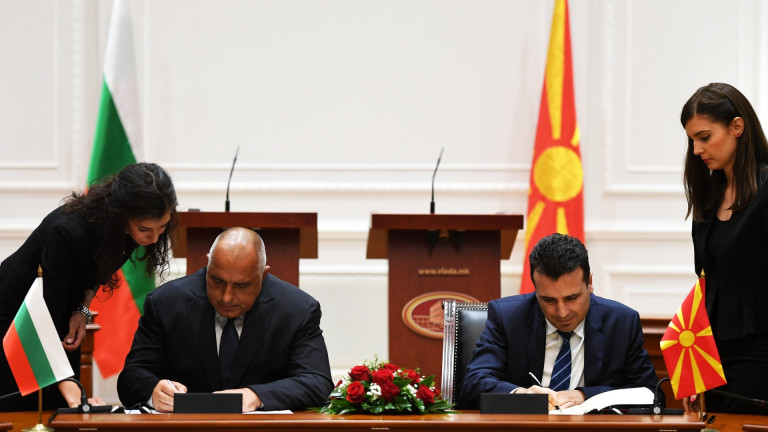 The Prime Ministers of Bulgaria and Macedonia signed on 1st of August the Good Neighborly Relations Agreement between Bulgaria and Macedonia. It is subject to ratification by the parliaments of the two countries. Signing the document is the basis for a lasting and sustainable building of friendly and good neighborly relations and will contribute to strengthening bilateral and multilateral cooperation, expanding transport links and communications, facilitating contacts between citizens of the two countries.
The Prime Ministers of Bulgaria and Macedonia signed on 1st of August the Good Neighborly Relations Agreement between Bulgaria and Macedonia. It is subject to ratification by the parliaments of the two countries. Signing the document is the basis for a lasting and sustainable building of friendly and good neighborly relations and will contribute to strengthening bilateral and multilateral cooperation, expanding transport links and communications, facilitating contacts between citizens of the two countries.
The transport ministers of the Republic of Bulgaria and the Republic of Macedonia signed a Memorandum of Understanding on the development of the railway links between Sofia and Skopje. The energy ministers of the two countries signed a Memorandum on cooperation in the area of natural gas.
Following the signing of the agreement, the prime ministers Boyko Borissov and Zoran Zaev also gave a briefing. The signing of the document was negotiated during the visit of Macedonian Prime Minister Zoran Zaev in Sofia in June.
The agreement provides for establishing a multidisciplinary expert commission (on parity principle) on historical and educational matters to bring about an objective interpretation of historical events. It also envisages organizing of joint observances of common historical events and personalities. The document states that the two countries do not have and will not make territorial claims against the other side. The two sides vow to take action for preventing hostile propaganda by their institutions and agencies.
BULGARIA: 2017 Election Results
As we have previously proposed, this puts Bulgaria back on the “Red Light of 25 Years of Communism…” as in 2013, 2014, 2015 and 2016…
Government Elections in Bulgaria (2005-2015):
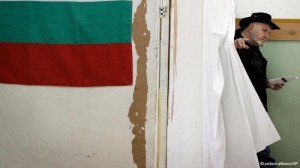 2005 Parliamentary Elections
2005 Parliamentary Elections
2006 Presidential Elections
2007 Municipal Elections
2009 Parliamentary Elections
2009 European Parliament elections
2011 Presidential Elections
2011 Local Elections
2013 Early parliamentary elections
2014 Early Parliamentary Elections
2015 Municipal Elections
Washington Post/Associated Press
SOFIA, Bulgaria — The center-right GERB party of former Prime Minister Boiko Borisov took the lead in Bulgaria’s parliamentary election on Sunday, a pair of exit polls showed, a result that if confirmed by official returns indicates support for the country keeping its European identity.
The Alpha Research exit poll said GERB won 32.2 percent of the vote, with the Socialist Party coming in second with 28 percent, while a separate exit poll by Gallup International Balkan had GERB with 32.8 percent and the Socialists with 28.4 percent.
The leader of the Socialists Party later conceded defeat and said the party would not take part in a coalition government with GERB.
Official results are expected Monday. If they confirm the exit polls, Borisov, a political maverick who combines man-in-the-street rhetoric with a pro-European Union disposition, will be handed a mandate to form his third cabinet.
GERB did not win enough votes to govern alone, and will likely form a coalition government with the United Patriots, an alliance of three nationalist parties that the exit polls showed placing third.
Borisov, 57, resigned as prime minister after his party lost the November 2016 presidential election. Parliament was dissolved in January, and the president appointed a caretaker government that will stay until a new government is formed.
Bulgaria elections 2017
With less than a week to go to Bulgaria’s early parliamentary elections on March 26, GERB leader Boiko Borissov and Bulgarian Socialist Party leader Kornelia Ninova are engaging sniper fire over Ninova’s pledge to block EU sanctions against Russia should she become prime minister. The election campaign will see exchanges between the leaders of Bulgaria’s two largest party take the form only of sniping at each other over the political parapets, given that in the past week it became clear they could not agree on the terms for meeting in a televised debate.
Ninova said towards the end of the week that she would debate with Borissov in absentia, making statements from wherever she was in Bulgaria and awaiting his response. Her first move was to say that should her party win the elections and she become prime minister, she would go to Brussels and say, “gentlemen, the next time you come to vote on sanctions against Russia, Bulgaria will impose a veto”. In making the move, Ninova ignored two facts, one that not all EU leaders are men, and second, that such votes are by qualified majority – meaning that a thing such as a Bulgarian veto does not exist. Borissov responded that a prime minister Ninova in Brussels saying that Bulgaria would “veto” sanctions against Russia would put Bulgaria into “monstrous isolation”.
As we have previously proposed, this puts Bulgaria back on the “Red Light of 25 Years of Communism…” as in 2013, 2014, 2015 and 2016…
Government Elections in Bulgaria (2005-2015):
 2005 Parliamentary Elections
2005 Parliamentary Elections
2006 Presidential Elections
2007 Municipal Elections
2009 Parliamentary Elections
2009 European Parliament elections
2011 Presidential Elections
2011 Local Elections
2013 Early parliamentary elections
2014 Early Parliamentary Elections
2015 Municipal Elections
Featured Author of the Month Evdokia Krusteva Shares Ancient Recipes of Bulgaria
BulgarianCooking.com’s featured author of the month is Bulgarian native, Evdokia Krusteva who wrote the cookbook, “Ancient Recipes of Bulgaria“.
Evdokia (Eva) Krusteva was born and raised in Yambol, Bulgaria. She is a fourth generation Pentecostal believer and minister of the gospel. She fondly remembers how her home was opened to holding services underground during communist times. These times would be centered around a meal as not to bring unwanted attention to people gathering.
Having lived in communist and post-communist Bulgaria, Eva has a unique view on life with a great story to tell. She often recalls how dishes were traditionally prepared growing up along with the many unique customs of each. She has included a few in this collection of memories.
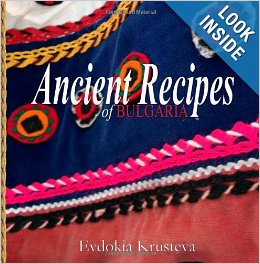 This cookbook features nearly two dozen truly ancient recipes of Bulgarian cooking. Some of these dishes are distant relatives to ones found in ancient Roman manuscripts believed to have been compiled in the late 4th or early 5th century AD. Others are among those far before the time of Christ. As Bulgaria is a country of oral history, recipes are typically not written, but passed down from one generation to the next by experiencing the method of preparation. With nearly every dish in Bulgarian cooking comes a story and custom. This cookbook attempts to preserve these hundred year old stories for many years to come so they can continue to be passed down.
This cookbook features nearly two dozen truly ancient recipes of Bulgarian cooking. Some of these dishes are distant relatives to ones found in ancient Roman manuscripts believed to have been compiled in the late 4th or early 5th century AD. Others are among those far before the time of Christ. As Bulgaria is a country of oral history, recipes are typically not written, but passed down from one generation to the next by experiencing the method of preparation. With nearly every dish in Bulgarian cooking comes a story and custom. This cookbook attempts to preserve these hundred year old stories for many years to come so they can continue to be passed down.


